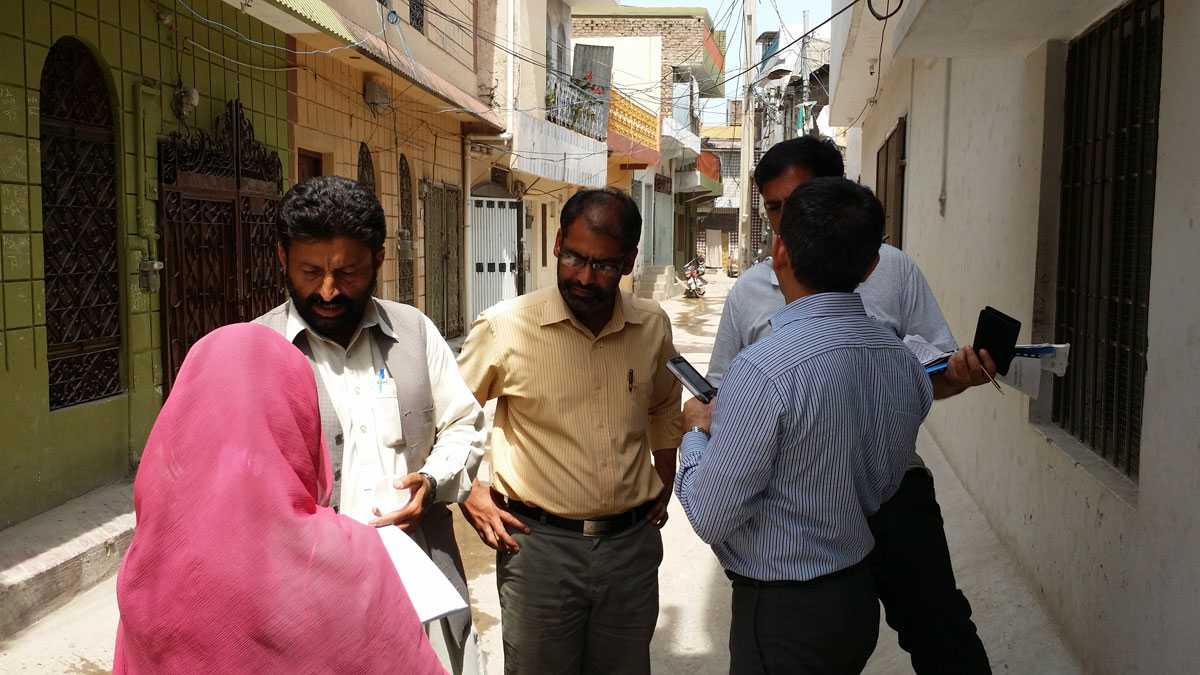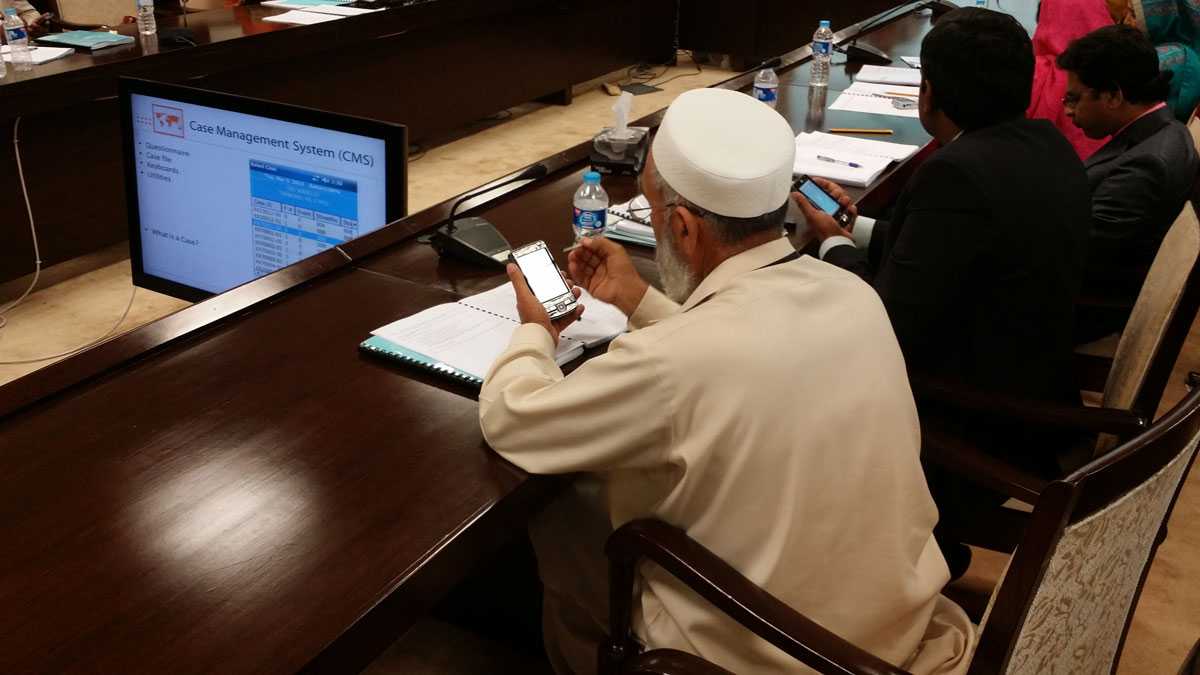Strengthening Tobacco Control Surveillance in Pakistan: Experience from the Global Adult Tobacco Survey (GATS)
Related Links
Worldwide, tobacco use is responsible for approximately 6 million deaths per year, and is the single largest preventable cause of death and disease. In Pakistan, the WHO estimates that approximately 32% of adult men and 6% of adult women use tobacco products[i]. Cigarettes are also becoming increasingly affordable in Pakistan; currently, a pack of 20 cigarettes costs less than USD $2.00.
Pakistan is conducting the Global Adult Tobacco Survey for the first time, establishing an accurate baseline of tobacco use and key tobacco control strategies. In April 2014, training was held to enhance surveillance capacity

Pakistan Bureau of Statistics and CDC in the field, conducting an interview with a Pakistani woman

Colleagues from the Pakistan Bureau of Statistics participate in a CDC facilitated training on pretest methods and procedures for the Global Adult Tobacco Survey implementation.
To enhance country capacity in tobacco control surveillance and monitoring, CDC is offering ongoing training and technical assistance. CDC facilitated a training workshop in Islamabad, Pakistan on interviewing techniques, electronic data collection and management procedures. Electronic handheld devices and software were provided for survey implementation. Pakistan will use electronic data collection for the very first time to collect data from 9,856 households. Such capacity-building investments will contribute to efficiency and sustainability. Pakistan completed data collection in 2014 and is scheduled to release their Executive Summary and Factsheet on May 28, 2015. The full Country Report will subsequently be released in the late summer or early fall. GATS is supported by the Bloomberg Initiative to Reduce Tobacco Use, a program of the Bloomberg Philanthropies.
- Page last reviewed: May 26, 2015
- Page last updated: May 26, 2015
- Content source:
Global Health
Notice: Linking to a non-federal site does not constitute an endorsement by HHS, CDC or any of its employees of the sponsors or the information and products presented on the site.


 ShareCompartir
ShareCompartir